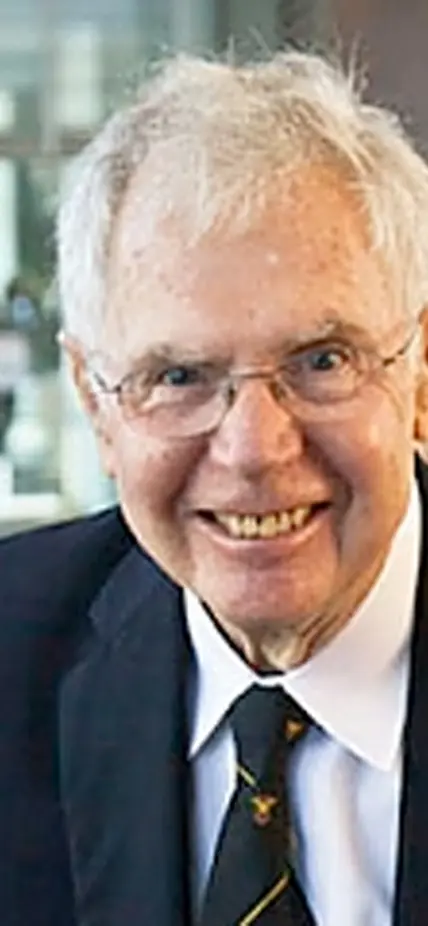Washington, DC—Carnegie astronomer John Graham—who also served during different periods as both Vice President and Secretary of the American Astronomical Society—died at home in Washington, D.C., September 13 after a battle with brain cancer. He was 79.
Graham, who specialized in the observation of young stars and the star formation process in the Milky Way and neighboring galaxies, joined Carnegie’s Department of Terrestrial Magnetism from the Cerro Tololo Inter-American Observatory in 1985. George Preston, who was Director of the Carnegie Observatories at the time Graham came to DTM, also offered Graham a simultaneous five-year adjunct appointment at the Mount Wilson and Las Campanas observatories.
“John was a passionate observer with very broad scientific interests,” said François Schweizer, Carnegie astronomer emeritus and longtime colleague of Graham’s at both CTIO and DTM. “But perhaps best of all, one could discuss with him any subject in astronomy and learn from his well-informed opinions. Such discussions were always permeated by his sense of humor and, hence, most enjoyable.”
In addition to his own research, Graham was an enthusiastic participant in the larger astronomy community. He was Vice President of the AAS between 1984 and 1986 and, after his retirement from DTM, he served again as the AAS Secretary from 2003 to 2009. He also spent a year as the Program Director of Stellar Astronomy and Astrophysics at the National Science Foundation’s Division of Astronomical Sciences from 2000 to 2001.
Although his work at DTM focused on young stars, before coming to Carnegie he pursued knowledge of old stars in the Milky Way and Magellanic Clouds. Graham’s paper on the radio galaxy NGC 5128, or Centaurus A, is still cited today. Often described as a consummate team player, he worked to establish a widely used network of photometric standard stars, as well as on the Hubble Space Telescope team with former-Observatories Director Wendy Freedman.
“John was a formal, quiet, generous, gentleman,” said DTM Director Richard Carlson. “It was an honor to have known and worked with someone contributed so much to Carnegie and to his field.”
